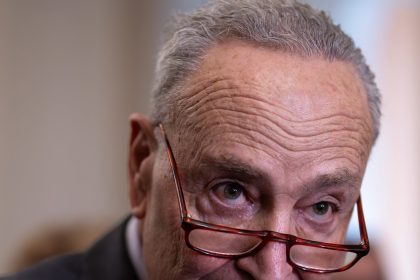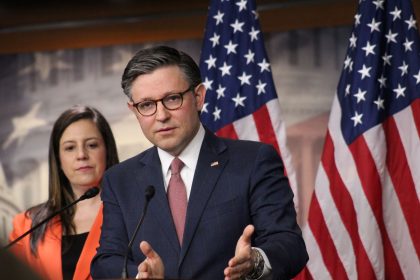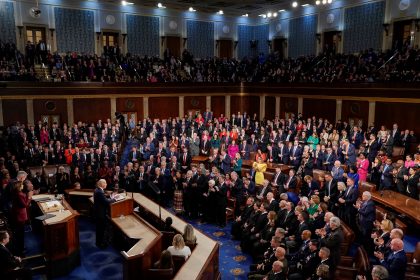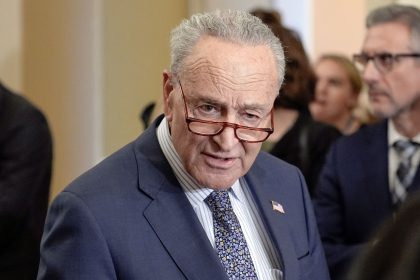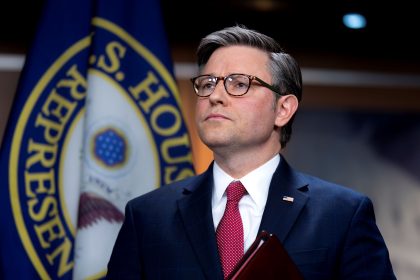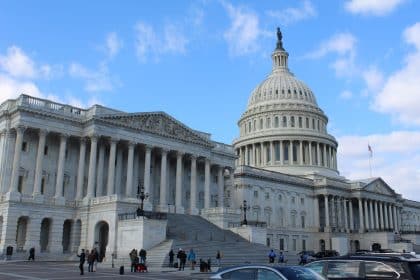Budget Deal Done, Blue Dogs Push For Serious Effort to Curb National Debt
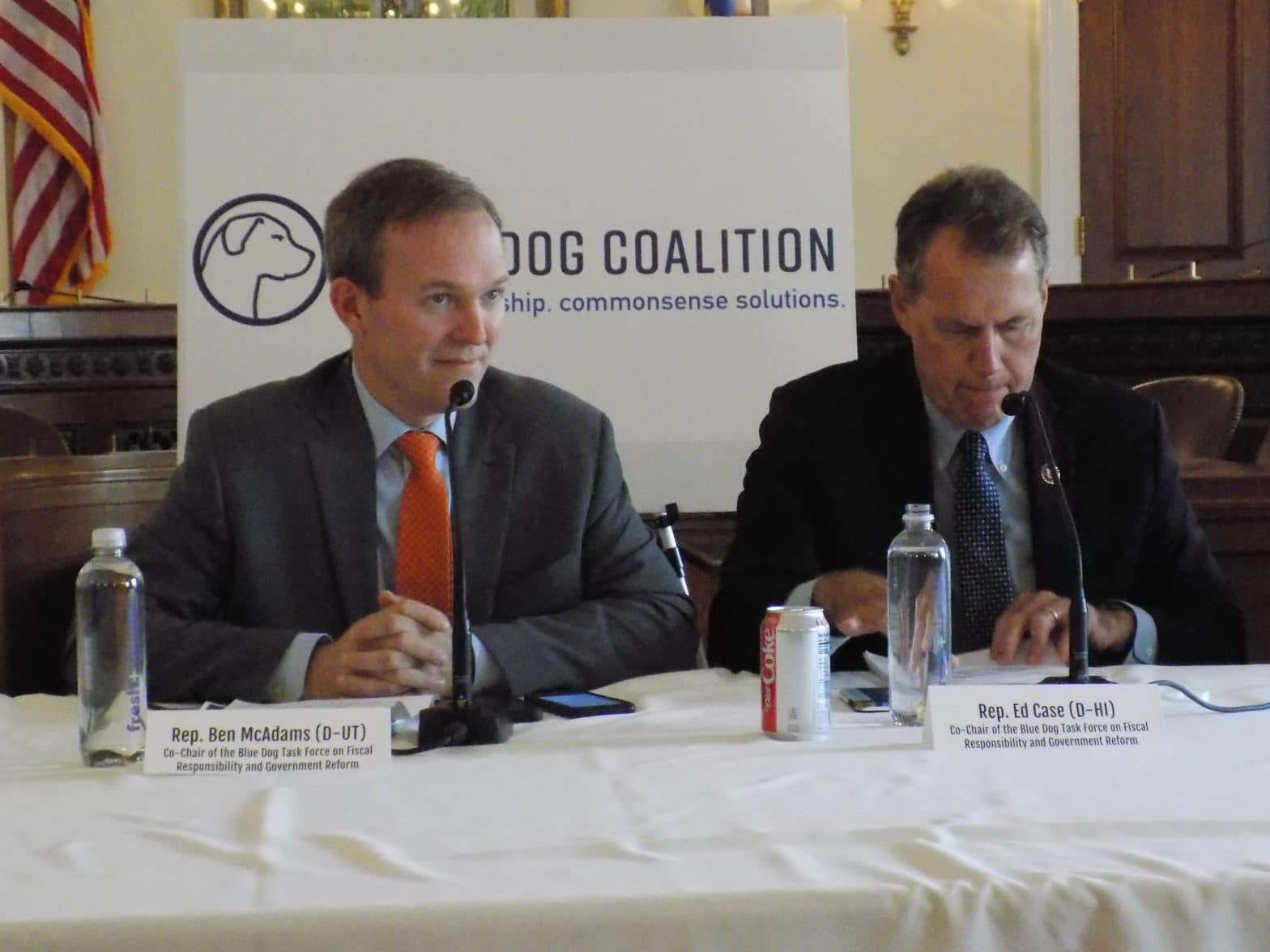
WASHINGTON – The House on Thursday approved a deal to lift the nation’s debt ceiling and raise caps set on federal spending for the next two years. But even as the votes were being cast on the measure, members of the Blue Dog Coalition were actively proclaiming there’s a way to manage the nation’s finances.
“While we don’t want to play chicken with the debt ceiling, I’m concerned with the significant spending increases,” said Representative Stephanie Murphy, D-Fla., during a forum the coalition hosted at the Longworth House Office building in collaboration with the Progressive Policy Institute.
Murphy, who chairs the moderate, fiscally-responsible coalition of House Democrats, declined to take an official position on the deal, but said personally she believes such deals shouldn’t be done “without having a broader conversation about our debt and being more responsible.”
“We’ve been governing from one crisis to the next and that basically eliminates our ability to make reasonable, rational decisions about what our priorities are,” Murphy said.
The deal crafted by Treasury Secretary Steven Mnuchin, on behalf of the White House, and House Speaker Nancy Pelosi, D-Calif, raises spending by about $322 billion, with $172 billion going toward national defense and the remaining $150 billion on domestic programs.
The measure, which passed the House 284-149, also effectively established an outline for next year’s federal budget, the details of which will be hashed out in the fall.
President Donald Trump tweeted his support of the deal Thursday morning, and Senate Majority Leader Mitch McConnell, R-Ky., later said the Senate will pass it in the next week before leaving for its August recess.
Many, however, are deeply chagrined by the deal. The Committee for a Responsible Federal Budget, an independent bipartisan think tank that focuses on the federal budget and fiscal issues, has decried the agreement, saying the proposed raising of the spending caps will result in an additional $1.7 trillion in debt over the next decade.
That point has been echoed by Ben Ritz, director of the Center for Funding America’s Future at the Progressive Policy Institute, and a speaker at the Thursday forum, who described the deal as tantamount to “charging $320 billion in new spending to our national credit card, which will further grow those debts and so perpetuate Washington’s governing dysfunction.”
Representative Murphy and the other Blue Dog Coalition members who spoke at the forum, Representatives Ben McAdams, D-Utah, and Ed Case, D-Hawaii, co-chairs of the coalition’s Task Force on Fiscal Responsibility and Government Reform, conceded the deal was a necessary, if unfortunate compromise considering the divided government and the need to prevent the nation from defaulting on its debt.
During the negotiations Mnuchin had said the Treasury will run out of money by September if Congress didn’t raise the debt ceiling, and Congress is scheduled to recess Friday for the month of August.
Murphy said one step she wishes had been taken when the deal was still in its nascent stages is the formation of a commission empowered to address the government’s addiction to debt.
“Get through this crisis, certainly,” she said. “But then put a mechanism in place to be more deliberative about what we need to do to be more responsible about our fiscal health and the debt going forward.”
McAdams said in his first six months in Congress, he’s been mystified about how lawmakers can so readily adopt priorities, considering them in complete isolation from their cost and how they intend to pay for them.
“When I talk about this, I often relate it to a household budget — this kind of budgeting is going to catch up to you over time,” he said.
“We need fiscal responsibility and we need to change the conversation here in Washington,” McAdams continued. “If you can kick the can down the road, people are going to be tempted to take that option. But the reality is the solutions to this problem are easier today than they are going to be tomorrow.”
Last week the Blue Dog Coalition released its comprehensive plan to help restore fiscal discipline in Congress. The “Blue Dog Blueprint for Fiscal Reform” outlines an extensive list of priorities that help reduce our budget deficits and begin to bring down our national debt.
A key provision of the blueprint is adherence to the bipartisan Pay-As-You-Go (PAYGO) rule, which mandates that all new spending and reductions in federal revenues must be paid for by cuts to other programs or bringing in new revenue.
“PAYGO is a simple, straight-forward concept and we absolutely have to live by it if we are going to stop the bleeding,” Case said.
The lawmakers’ arrival at the forum was preceded by a panel discussion moderated by Will Marshall, president of the Progressive Policy Institute and featuring Ben Ritz, Marc Goldwein, senior vice president of the Committee for a Responsible Budget, and Emily Holubowich, executive director of the Coalition for Health Funding and co-Founder of NDD United, an alliance working to protect investments in core government functions.


















